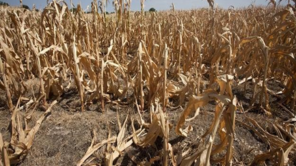The State Water Holding Polish Waters announced a number of drought prevention measures for the agriculture sector. The first consultation meeting on the Drought Effects Counteracting Plan (DECP) was held in Poznań on September 11th, and choosing this city to host the event was by no means an accident. More than half of the Polish forest and agricultural areas threatened by drought are located in the Wielkopolskie Voivodeship. In 2018 alone, droughts affected over 53,000 farms in this province of Poland and generated losses estimated at nearly PLN 1.2 billion.
The first Polish geoportal, available at konsultacjesusza.pl, examines the degree of agricultural, hydrological and hydrogeological drought hazards in individual regions of the country.
On a national scale, 38% of agricultural and forestry areas are affected by drought. Although it is the agricultural producers who are affected the most by this phenomenon, this problem also has an impact on society as a whole due to rising food prices. In the activity catalogue that is part of the DECP project, as many as six actions are devoted to agricultural drought issues. As part of this project, both technical and non-technical activities are planned to be implemented. The former includes the reconstruction of drainage systems so that they simultaneously perform the role of irrigation and drainage facilities. Also, the construction of irrigation intakes, whereas the latter includes agrotechnical measures to improve water and air conditions of the soil in agricultural areas.
These measures designed to support farmers will also be complemented by institutional changes regarding the methods of monitoring droughts. They will provide information on their course, as well as works aimed at developing drought countermeasure financing rules in operational programmes. These activities conducted by the Polish state must however, be supported by the strong engagement of the farmers themselves. As such, good practices for rationalising water use in agriculture will be developed for them. These practices will include guidelines on conducting agricultural operations in such a way as to limit water outflow, as well as creating ponds and field greenery. ‘Only by implementing this entire integrated set of measures can we prevent farmers from suffering severe consequences of drought in the future, as was the case in recent years’ – stated Przemysław Daca, President of the State Water Holding Polish Waters.
Science has provided us with a significant amount of convincing evidence proving the effectiveness of drought countermeasure activities. For example, research indicates that in the case of corn, maintaining proper field irrigation during water shortage periods may increase the yield by more than 3 tonnes per hectare. In turn, introducing field greenery in the form of trees may increase the soil’s water retention capacity by up to 25%, whereby slowing down the soil drying process and facilitating germination and further development of the crops. The implementation of these measures by farmers can, therefore, bring measurable benefits in the form of better crops, even with little to no rainfall.
In addition, the SWH Polish Waters plans to implement 21 hydro-technical investment projects in the Wielkopolskie region which will be aimed at improving water retention and counteracting the effects of drought. These projects are included in DECP as part of the proposal for the construction and reconstruction of water facilities.
The consultation session in Poznań was the first in a series of fifteen such debates concerning various aspects of drought prevention that will be held throughout Poland as part of the DECP project. The public consultation phase will last six months (visit www.stopsuszy.pl for more information). The DECP is the first such comprehensive project on counteracting the effects of drought in Poland. Information about the DECP project is available at www.stopsuszy.pl and www.konsultacjesusza.pl. You can also submit applications and comments to the DECP programme through a special form available there.
The DECP document, which will be the most important product of the Stop drought! project, as well as the water and flood risk management plans, will greatly contribute to improving the water management processes in Poland. After the public consultations, which will be open for everyone to take part and submit their observations and conclusions, the DECP project will undergo a strategic environmental impact assessment. Afterwards, in 2020, the final step will be taken to formally adopt the project via a regulation prepared by the minister responsible for water management. At that point, Poland will join the group of 10 European countries that have developed drought countermeasure plans. Similar projects have already been implemented by such countries as the United Kingdom, France, Spain, Portugal, Slovakia and Ukraine.
The President of the SWH Polish Waters is obliged to prepare a drought effects countermeasure plan due to the provisions of art. 240 par. 2. pt. 8) of the Act of 20 July 2017 – Water Law (Dz.U. of 2018, item 2268). So far, as part of the Stop drought! project, a DECP preparation methodology was created and a survey of 3,500 entities related to water management was conducted. In addition, the draft plan of the project was presented at national expert conferences and as part of the ‘Remember about water!’ social campaign. All works are financed via European funds (OPI&E 2014-2020).
Find out more here: www.stopsuszy.pl, www.wody.gov.pl and www.konsultacjesusza.pl


